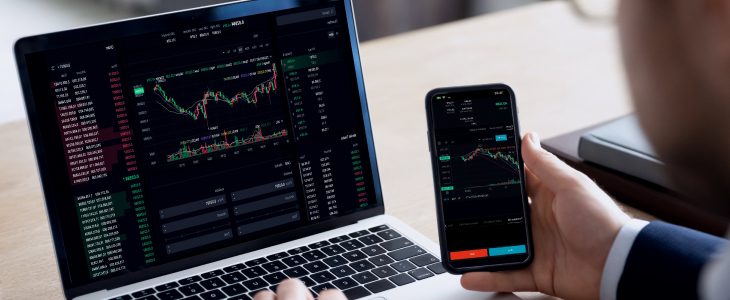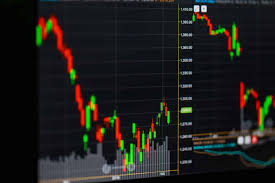
Forex Trading Strategies for Small Investors
In the dynamic world of forex trading, small investors often find themselves at a disadvantage when compared to larger institutions. However, with the right strategies, they can effectively navigate the market and capitalize on various opportunities. Understanding fundamental principles and creating a solid trading approach is crucial for success. Additionally, for traders seeking reliable platforms, consider exploring forex trading strategies for small accounts Trading Brokers in India, which can provide useful insights and support for your trading journey.
Understanding Forex Trading
The foreign exchange (forex) market is the largest financial market in the world, with daily trading volumes exceeding $6 trillion. It operates 24 hours a day, allowing traders to participate from various time zones. Forex trading involves buying one currency while simultaneously selling another, and prices fluctuate based on supply and demand factors along with geopolitical events, economic indicators, and market sentiment.
The Importance of Education
Small investors must prioritize education before diving into trading. Familiarizing yourself with market terminology, trading strategies, and analytical techniques can significantly enhance your profitability. There are numerous online courses, webinars, and resources available that cater to various levels of expertise. Allocating time to educate yourself is a crucial step toward becoming a successful trader.
1. Setting Realistic Goals
One of the first steps in developing a trading strategy is setting realistic and achievable goals. Determine what you want to accomplish within a specific timeframe—be it extra income or capital growth. Small investors should avoid lofty targets and instead focus on manageable profits that can accumulate over time. This approach will help maintain motivation while minimizing the potential for disappointment.
2. Choosing the Right Trading Style
Different trading styles cater to various investor preferences, risk tolerances, and time commitments. Here are a few common styles:

- Scalping: This involves making numerous trades throughout the day to capitalize on small price movements. Scalping requires quick decision-making and a deep understanding of market dynamics.
- Day Trading: Day traders open and close positions within the same day, aiming to profit from intraday price movements. This style requires constant market monitoring and can be psychologically taxing.
- Swing Trading: This strategy involves holding trades for several days to capture larger price movements. It is ideal for those who cannot dedicate their entire day to trading.
- Position Trading: Position traders hold onto their trades for weeks or months, relying on long-term market trends. This strategy suits those who prefer a less time-consuming approach.
3. Risk Management
One of the most critical aspects of trading is managing risk. Small investors often have limited capital, making risk management even more essential. Here are some effective strategies:
- Use Stop-Loss Orders: Setting up stop-loss orders can help limit potential losses by automatically closing a position once it reaches a specified price.
- Limit Your Leverage: While leverage can magnify profits, it can also increase losses. Small investors should use leverage cautiously, opting for lower ratios to minimize risk.
- Diversification: Avoid putting all your eggs in one basket by diversifying your trading portfolio. Trading different currency pairs can reduce the overall risk.
- Only Risk What You Can Afford to Lose: Never invest more than you can afford to lose. This principle is fundamental to ensure that a few bad trades don’t jeopardize your overall financial wellbeing.
4. Develop a Trading Plan
A well-defined trading plan acts as a comprehensive roadmap for your trading journey. It should include:
- Your trading goals and objectives
- Your chosen trading style
- Risk management strategies
- Trading rules and criteria for entering and exiting trades
Stick to your trading plan and avoid making impulsive decisions based on emotions or market noise. Consistency will lead to greater success over time.
5. Technical and Fundamental Analysis
Understanding both technical and fundamental analysis is crucial for making informed trading decisions. Technical analysis involves studying price charts and using indicators to predict future price movements. Meanwhile, fundamental analysis looks at economic indicators, news events, and geopolitical factors that might affect currency values.

Technical Analysis
Technical analysis revolves around concepts such as support and resistance levels, moving averages, and various chart patterns. Tools like the Relative Strength Index (RSI) and Moving Average Convergence Divergence (MACD) can assist traders in identifying potential entry and exit points.
Fundamental Analysis
Fundamental analysis is about understanding the economic factors driving currency value. Key indicators include GDP figures, employment data, interest rates, and inflation rates. Staying updated on news that affects the forex market will help you anticipate price movements effectively.
6. Demo Trading
Before trading with real money, consider utilizing a demo account to practice your strategies and get a feel for the trading environment. Most brokerages offer demo accounts that simulate live trading conditions. This practice will help you build confidence and refine your trading skills without the risk of losing real money.
7. Continuous Learning and Improvement
The forex market is constantly evolving, and staying abreast of new developments is paramount. Regularly review your trades, analyze what went right or wrong, and adapt your strategies as needed. Join trading communities, follow influential traders, and participate in forums to continuously expand your knowledge.
Final Thoughts
Forex trading can indeed be a rewarding venture for small investors if approached with the right strategies and mindset. The key lies in education, effective planning, risk management, and continuous improvement. By following the strategies outlined in this article, small investors can position themselves for success in the vast world of forex trading. Always remember that discipline and patience are essential virtues in the trading arena.
